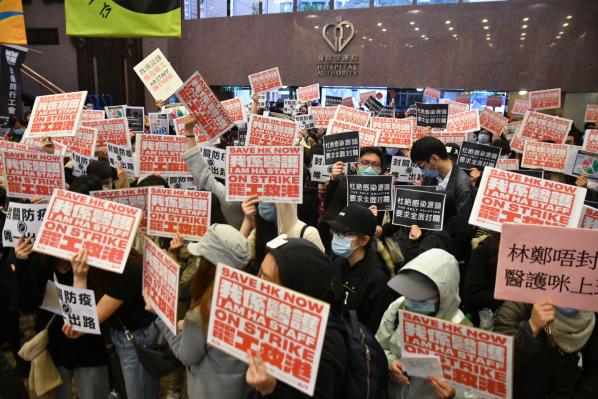
The coronavirus (covid-19) outbreak in China, and the government’s measures to contain it, have presented workers with unprecedented challenges in terms of returning to work, ensuring they will be adequately protected from infection once they do resume work, and safeguarding their rights to remuneration, social insurance and compensation if they are laid off.
Over the last month, CLB has focused on how workers are coping with these challenges and what if anything the trade union is doing to help.
We first looked at the workers at the centre of the epidemic in Wuhan, who are striving behind the scenes to combat the spread of covid-19. While the efforts of healthcare workers in Wuhan have, quite rightly, garnered most attention, the city’s sanitation workers, community workers, taxi drivers and delivery workers have played a vital role in keeping the city functioning.
Thousands of construction workers in Wuhan and other cities have been recruited to build or renovate hospitals to treat those infected with covid-19. They have worked around the clock to complete these projects in little more than a week. Sadly, however, we have already seen reports of construction workers not being paid or being infected with covid-19 because they lacked protective gear.
After the extended Lunar New Year holiday, the national and regional governments introduced a wide range of measures designed to get people safely back to work. However, a lack of coordination between different regions meant that millions of migrant workers were left in limbo, some unable to return, others facing two weeks’ quarantine if they do return.
The government’s main concern has been to reduce the financial burden on small and medium-sized enterprises so that they can stay afloat and not lay off staff. However, many business owners have complained that the measures announced so far are inadequate and that other measures designed to halt the spread of covid-19 have actually increased their financial burden.
Moreover, by deferring or exempting employers from social insurance contributions for up to five months, the government risks labour disputes later in the year if enterprises go out of business without paying employees’ social insurance contributions, wages in arrears or any kind of compensation. Equally concerning is the boom in so called “shared employees,” in which companies with low demand “lend” workers to companies such as online delivery businesses with a high demand for staff.
Meanwhile, what is the trade union doing to help workers in this time of crisis? Our initial investigation into the plight of sanitation workers in Beijing and Guangzhou suggests the local unions are completely out of their depth. See our story (in Chinese) here - 疫情下确保环卫工人防护,工会组织大有可为.
CLB now has a new dedicated Chinese website and we will soon launch a Chinese-language newsletter to expand our coverage. To subscribe, just enter your email address in the订阅电子月报form on the front page of the website.
中国劳工通讯即将推出中文电子月报,您可以在中国劳工通讯网站登记,选择电子月报语言,欢迎广大读者订阅。我们将于每月初向订阅读者发送中文电子报,重点关注工人集体行动以及安全生产的最新趋势和发展。
